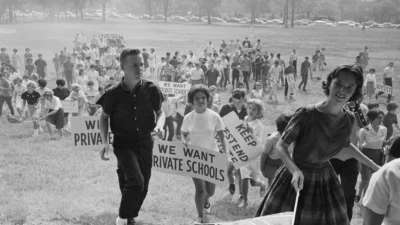When Pittsburgh-area native Muffy Mendoza was a young mother in New York City, she struggled with long-term postpartum depression. Overwhelmed with caring for young sons just 11 months apart, age 2 and 3 at the time, plus a 10-year-old son, Mendoza felt isolated and yearned to return to her hometown to be closer to family.
She did not want to take antidepressants, but moving back home into her support system in 2011 pulled her out of the depression.
“Back then, that wasn’t something you really talked about,” said Mendoza, whose sons are now a young adult and two teenagers. “My community saved me – my family, my community, and coming back home to Pittsburgh. I realized that I just really needed my people.
“I would say that when you have back-to-back babies, it can be rough until they turn 5,” said Mendoza, who home-schooled her children. “You’re juggling two little people who can’t take care of themselves.”
One thing Mendoza brought home with her from New York is an idea inspired by the “Mocha Moms” community she participated in while living in New York. Through Mocha Moms, New York mothers gathered online and in person to vent to each other about things they got better than anyone else, and to provide practical support and fellowship. Mendoza reached out to several Pittsburgh mom friends after coming home, and invited them to get together. Soon, seven or eight met in a living room, and that was the beginning of what Tica dubbed, “Brown Mamas.”
Now, her network has grown to more than 6,400 Black moms in the Pittsburgh area, and 10,000 nationwide through online communities.
The benefit of this and other moms’ groups is the camaraderie and support with people who get it, said Mendoza, founder and CEO of Brown Mamas LLC.
“I think the currency of moms’ groups is validation,” she said. “You must want to feel like you’re doing the right thing. You want to feel that someone else knows what you’re going through.
“It gives them opportunities to be heard and seen,” Mendoza said. “When you’re meeting in the living room with five women, going to support group meetings, or telling your story about mothering on stage, you are essentially getting validation …. Traditionally, black women have not been heard and not been seen.”
“I do this because it is my purpose. This is one of the reasons I’m here: to support moms, and to uplift moms to see themselves as more powerful than they think that they are.”
Through Brown Mamas, Black mothers have built a community of support, based on the needs for emotional support, and practical help like swapping babysitting favors. Moms often post in the online groups saying: “Can somebody come pick up my kids?” Or, they might ask for a car seat, recommendations for Black doctors, and ask for other needs community members can help meet. Members might post about delicate and difficult problems they are having with their children, or with breastfeeding and other body issues. They talk about mental-health issues, and societal problems they face like inadequate wages, and lack of access to quality healthcare.
“A lot of things we’re going through on a day to day [basis] in our community aren’t about babies crying, but about affording a place to live,” Mendoza said. “We have really cultivated an ecosystem here in Pittsburgh that really centers the Black mothering experience.”
“It’s really just about finding the currency of exchange, and giving them the platform to easily exchange that currency. “It’s this idea of reliance – relying on a community of people. It’s also really about letting the community do what the community is supposed to do.”
The modern world has erected so many barriers of mistrust among neighbors, friends and family members, Mendoza said. Businesses like daycare centers do a good job of providing childcare, but in previous generations, people watched each other’s kids.
“Not that they are a bad thing – daycare centers are a great thing – but daycare is a thing we used to do in community,” Mendoza said. “If institutions are doing things that people are not, there is less trust. The bottom line is: The less you use something, you lose it.”
With Brown Mamas, mothers have rediscovered a community of moms who can help each other with tasks like babysitting, Mendoza said. Members of Brown Mamas also get the benefit of much-needed rest with Self-Care Saturdays, when moms gather in a park during warmer months to mediate and rest while someone provides childcare.
“We are operating on nothing, pouring from an empty cup, and we should rest,” Mendoza said. “Moms are always trying to take care of other people. The best thing you can do is seek out a place you can rest.”
Mendoza says that helping mothers is a calling.
“I do this because it is my purpose,” she said. “This is one of the reasons I’m here: to support moms, and to uplift moms to see themselves as more powerful than they think that they are.”
Hear more from Muffy on the Good Health, Better World podcast.







